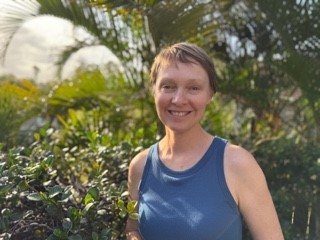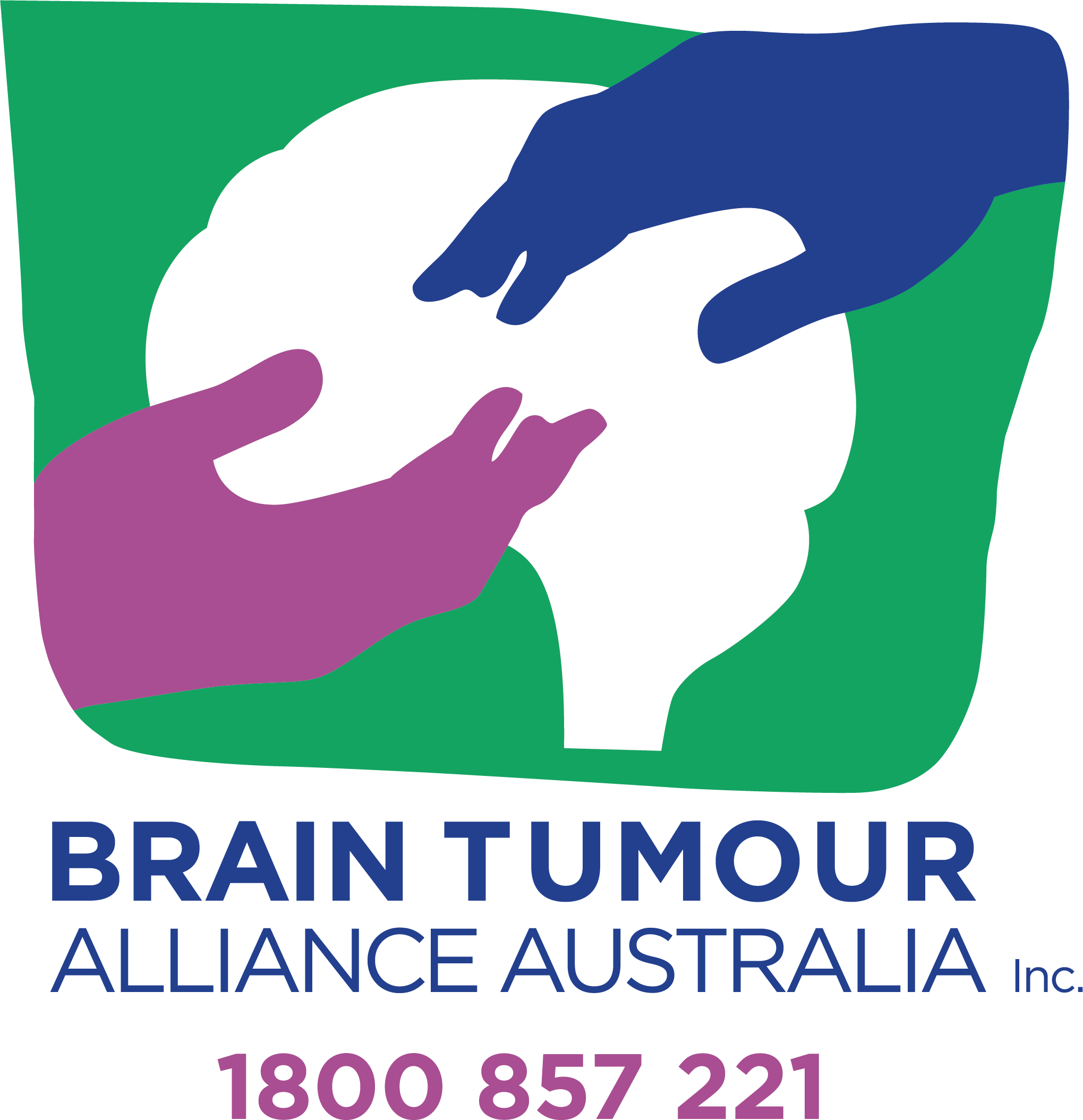

I DON’T KNOW - Jane Whitehead
Death
When will I die? How will I die? What happens after I die ...
Wait.
I will address Death in its rightful place - at the end of this unfortunate, but true story.
Let me start at the beginning.
Diagnosis
Astrocytoma, IDH-mutant, WHO grade 4. Removed from my brain on August 4, 2023.
According to information generated by AI on the internet, “a stage 4 astrocytoma, also known as a glioblastoma (GBM), is a fast-growing and aggressive brain tumour that can be fatal if left untreated.
Symptoms: headaches, difficulty speaking, vision changes, cognitive difficulties, and seizures. Treatments: Surgery, radiation therapy, and chemotherapy. Survival: The average survival time is 12-18 months, with only 25% of patients surviving more than one year.”
Prognosis
24-month life expectancy.
My surgeon, brilliant by all accounts, told me that her surgical team removed 95% of my tumour, but that ‘You will die from this. Do your bucket list.’
She was a straight shooter. I appreciated her honesty.
But … how can she know for sure that I will die from this at all, let alone within 24 months? I don’t care who she is! She can’t read my future. She doesn’t know me! How can she know for sure what my future holds? What my body is capable of? My body’s own mysterious, miraculous powers of self-healing?
And on what research has she based my 24-month life expectancy?
No research was done on me; on my Astrocytoma IDH-mutant WHO grade 4 tumour, in my body.
The science behind cancer, particularly brain cancer, is constantly changing. New theories come forward, old ones are discarded. Five years ago, Astrocytoma IDH-mutant WHO grade 4 tumour was officially considered to be a glioblastoma - the most deadly of the brain tumours. It was recently downgraded to a less lethal category, with a slightly higher life expectancy. Such a reclassification seems comically arbitrary, given the seriousness of the disease. Maybe in a few years they’ll reclassify my tumour type again. Maybe, I will not be guaranteed to die from my tumour in 24 months. Or at all!
You will die from this
Do I go through with the eight months of standard-of-care treatment recommended to me?
My oncologists said vague things to me like, ‘With your particular tumour type, there have been good results with this treatment.’
My surgeon said, 'You will die from this'.
If I’m a dead woman walking anyway, what’s the point?
I left hospital and went home to recuperate from my surgery, and indulge in many, many, sleepless, dark nights of the soul.
Oncologists operate in the realm of probabilities, based on the latest research that can be updated at any time. If my tumour can get downgraded, what else might they be wrong about?
My treatment, should I choose to go through with it, would start with six weeks of daily brain radiation (except for weekends and public holidays, and when the machine is being serviced!), together with daily temozolomide (chemotherapy) pills. This would be followed by four weeks of no treatment, giving my body time to heal, then a further six months of higher dose chemotherapy.
Will the mysterious number of extra days of life I gain from undergoing treatment be worth the horrific side effects?
The most common side effects from brain cancer treatment are nausea, constipation, chemo rash, and an industrial-strength, foul-smelling, ungodly toxicity that effects every cell in the body. Temozolomide is so toxic, you are told to wash your clothes separately from other members of your household, including sheets, and to flush the toilet with the lid down.
Each brain cancer patient has his or her own unique experience when it comes to the side effects of radiation and chemotherapy. Some patients experience such bad side effects, they cannot make it through the treatment.
The choice was in my hands.
Decision
My decision to allow medical and radiation oncologists, radiation technicians, and the big angry-sounding machines they trust and manipulate full access to my body for eight months, was in large part unrelated to my own personal faith in the treatment.
I chose to go ahead with the standard-of-care treatment for two reasons, neither of which I’m exactly proud of.
Firstly, I was, and continue to be, intimidated by experts in all areas, medical or otherwise. The belief of my oncologists, and those who love me, that denying myself standard-of-care treatment would most certainly decrease the amount of days of life I have left to live made me doubt myself. What would I know? Who am I to doubt and waste the time of the experts - the intelligent, highly qualified, busy ones who save lives every day? I have no hope of being as smart as they are, with their degrees and research and knowledge. I quit biology in year 9! Who am I to waste their time with stupid questions and what-ifs and doubts about the true benefits of the treatment they were recommending? I am just the person who’s life is at stake.
I should have asked more questions, and not stopped until I felt more secure in my decision.
Which brings me to my second reason for deciding to undertake standard-of-care treatment. I find it almost impossible to take in even the simplest information when I’m stressed and anxious. What hope did I have of understanding the complex biochemistry of my Astrocytoma IDH-mutant WHO grade 4? My oncologists were very good. They had pen and paper at the ready, and drew me dumbed-down diagrams, with lots of acronyms and arrows and conjoining circles, and explained all sorts of stuff about cell mutations and mutant and non-mutant genes and the difference between IDH1 and IDH2 (which one am I again?), pathways and percentages of improved life expectancy for my type of tumour - if I choose the standard-of-care treatment. I nodded and said words like okay, aha, and sure, indicating that I knew what the hell they were talking about.
Sometimes I did. Mostly, I didn’t.
I was a good girl. I chose to go through with standard-of-care treatment.
Treatment
Treatment: Six weeks of radiation and chemotherapy (temozolomide in pill form), followed by a month off for recovery, then six months of a higher dose of temozolomide.
Temozolomide, according to Wikipedia, is “an anticancer medication used to treat brain tumours such as glioblastoma and anaplastic astrocytoma.” Side effects include “nausea, vomiting, constipation, loss of appetite, alopecia, headache, fatigue, convulsions (seizures), rash, neutropenia or lymphopenia (low white-blood-cell counts), and thrombocytopenia (low blood platelet counts).”
I tolerated the chemo and radiation enough to make it to the end of my treatment, although I did not make it out unscathed. The radiation and chemo exhausted me beyond anything I have ever experienced. The radiation caused nasty, itchy burns on my forehead, and my hair fell out - more so on the right front of my head, where my tumour had been. Due to extreme nausea, I could only keep my chemo pills down if I took an anti-nausea pill an hour before the temozolomide. I had a maddeningly itchy, angry looking chemo rash all over my body towards the end of treatment, and a low white blood cell count.
I won’t address here the fear, depression and dread that accompanied all of this. It’s still too much to even think about.
Was it worth it?
I don’t know.
Things I know
I finished treatment 7 months ago. These are the things I know for sure:
- I had a brilliant surgical team. I currently have not experienced any lasting physical side effects from my surgery. My decision to take agency over the things I can control has kept my body and mind strong during and after treatment. This has involved the powerful adjunct therapies of adhering to a low-carbohydrate (ketogenic) diet, and doing regular weight-bearing and cardio exercise.
- I feel and look healthier than I have in years. My skin is clear, and I have natural colour in my cheeks. My body feels and looks strong, and I need less sleep. My immunity is strong. I never get sick. We just returned from a six-week world trip (bucket list!), and I did not get sick once. My husband came down with two colds.
- I have never had a seizure. This is a true blessing. Seizures are an incredibly common side effect of brain tumours, brain surgery and radiation. They can often be catastrophic, causing neurological damage, not to mention the danger of physical injuries during the seizure. Most patients who experience regular seizures are on anti-seizure medications for life. These come with their very own side effects. (A ketogenic diet was traditionally used to stop seizures in treatment-resistant epilepsy patients. Particularly children. Could this be why I haven’t had any seizures? Who knows …)
- I have incredibly supportive friends and family, and my husband, in particular, saves me every day. We are a two-person team. His love gives me a reason to live. My love gives him a reason to live. It’s not just my life I’m fighting for.
- I am blessed to live in a country where all of my cancer treatment has been free, except for a few scans and medications, and both of these are highly subsidised by Medicare.
I don’t want to end this true story with Death anymore. This is a true story! It is not true that I will die from my Astrocytoma, IDH-mutant, WHO grade 4. It is a medical opinion based on the latest research. That is all.
Let me end here instead.
Hope
I have felt the despair of hopelessness many, many times since my Astrocytoma, IDH-mutant, WHO grade 4 diagnosis. Many times, I have wanted to die; to assert control over my own dark, uncertain future by ending it all while I am still healthy.
I am still here, because I have Hope.
For me, Hope arrives out of nowhere, (much like hopelessness) and returns there just as suddenly. Sometimes it comes at a time when it has no right being there at all.
But there it is.
I cannot make it appear, or stick around, but I am ready to greet it with open arms when it knocks on the door of my heart.
I hold it loosely. It is free to go, because it will be back.
When Hope arrives, I know I can overcome anything. Maybe even my curious, mysterious little friend, Astrocytoma, IDH-mutant, WHO grade 4.
If you would like to share your story with us, please get in touch, we would love to hear from you!
To return to the BTAA homepage, please click here.

